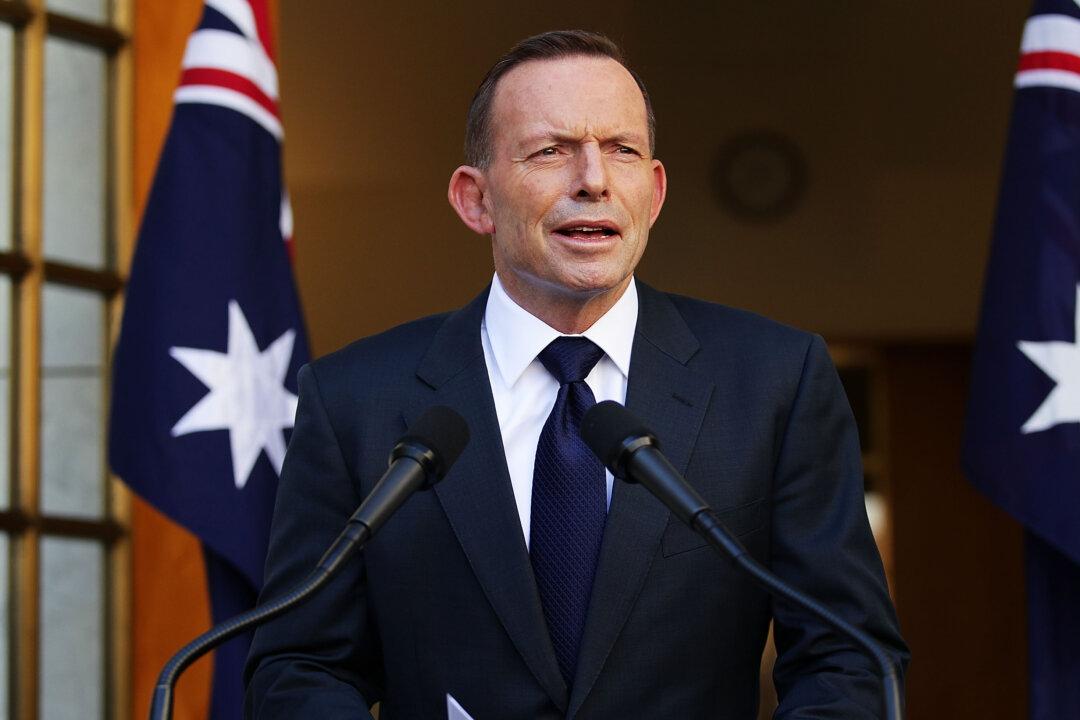OTTAWA—Former Australian Prime Minister Tony Abbott says he hopes that over time, the Chinese people will be free of the communist regime in China.
“I think that the million or so Australians of Chinese background are over time going to be the agents of Australian influence in China rather than the other way around,” Mr. Abbott said at the Canada Strong and Free Network conference in Ottawa on April 12.





